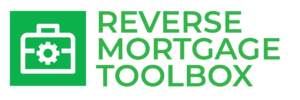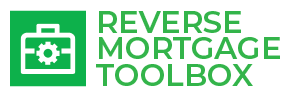Will I still own my home with a Reverse Mortgage?
You will always maintain complete ownership of your home! When completing a Reverse Mortgage, you maintain complete ownership of your home and we will never force you to move from your home.
What is the minimum property value for a Reverse Mortgage?
Your property must have an appraised value of at least $150,000 in order for you to be eligible for a Reverse Mortgage. The appraised value of your home is only one element in determining whether you are eligible and how much you qualify for. The other important factors are your age, the age of your spouse and the location of your home. Minimum advance amount is $25,000.
Do I need to have a good credit for a Reverse Mortgage? Will my credit history be checked?
As part of our review of your application, we do request your consent to obtain a credit bureau. Your credit bureau is reviewed and is part of your decision process.
How will a Reverse Mortgage affect my tax liability, Old Age Security (OAS), or pension benefits?
As a Reverse Mortgage is considered tax-free income, it will not affect Medicare or pension benefits. Because of this, the Reverse Mortgage is a terrific way to supplement post retirement income when your pension and Retirement Savings Plan (RSP) may not be enough to cover your expenses
What if I already have a mortgage on my property?
If you have a mortgage, it must be paid off so that the reverse mortgage can be registered in first priority. You can use the proceeds from the initial advance to pay off your existing mortgage, any outstanding debt, or lien registered against the property.
What are the obligations of a Reverse Mortgage borrower?
As a Reverse Mortgage borrower, you will have a few responsibilities:
- maintain basic home repairs
- pay all property taxes
- pay the home insurance
What documents are required to get a Reverse Mortgage and how do I find them?
If you are approved for a Reverse Mortgage you will be required to prepared and send the following documents. Note that individual circumstances vary and this is not intended to be a comprehensive list.
- 2 forms of identification
- Verification that the property is your principal address
- Signed application
- Required legal documents
- Property Insurance information
- Statement(s) on any existing mortgage (if applicable)
- Proof that property taxes are up to date
When the loan becomes due, what amount must be repaid?
The Reverse Mortgage only becomes due once you move, sell the house or eventually pass away. If you are living in your home, the lender will not approach you for payments. Once the Reverse Mortgage becomes due, the total amount of the Mortgage plus interest would be due. This is typically covered by equity of the home and in most cases (99% of our clients), the sale of the house ends up covering the cost of the Mortgage plus leaving money left over.
What happens if I outlive the Mortgage? Can I lose my home because I lived longer than expected?
With a Reverse Mortgage, you remain as the owner and the bank never takes ownership of your home, provided you have met your mortgage obligations*. Your Mortgage only becomes due when you sell your home, move out of your home or eventually pass away. The Reverse Mortgage is a non-recourse loan, meaning that the borrower will never owe more than the home is worth. Your obligation is to ensure that you are paying your property taxes, home insurance and that your property is well maintained.
*Obligations include paying your property taxes, maintaining your property and paying your home insurance.
How can I receive proceeds from a Reverse Mortgage? What are the various options to receive Reverse Mortgage funds?
Funding options for your Reverse Mortgage include receiving the proceeds of your Mortgage as a one-time lump sum payment or receiving scheduled payments over time to supplement your retirement income. These payment methods can also be combined to receive both as funds up front at time of closing and the rest in incremental scheduled payments.
What happens if I die during my Reverse Mortgage loan before I receive the full amount of my mortgage?
In the event you pass away before taking out your Reverse Mortgage in its entirety, your heirs will only be liable to repay the amount of the loan (and the interest accrued) on that portion of the Reverse Mortgage.
When I pass away, will my heirs be responsible for the repayment of the Reverse Mortgage?
When the borrower(s) pass away, the heirs will be responsible for repayment of the Reverse Mortgage. Typically, the heirs would make the choice to sell the property in order to repay the Reverse Mortgage amount.
What can I use my Reverse Mortgage funds for?
Reverse Mortgage funds are yours to use however you wish. The Reverse Mortgage funds are often used to pay off debt, health care related costs, house renovations, income supplements, living expenses, and travel. If you have an existing mortgage or loans secured against your home, the proceeds of the Reverse Mortgage must first be used to pay-off these debts, then the remaining funds can be used for whatever you like!
How are the fees and interest rates for a Reverse Mortgage calculated?
Reverse Mortgage interest rates are available in both fixed and variable terms. The variable rate will fluctuate as it is directly influenced by the Bank of Canada’s prime rate. If the Bank of Canada’s prime rate increases, for example, your Reverse Mortgage interest rate will also increase. The fixed rates are set for a pre-determined timeframe and are available for a six-month, 1-year, 3-year or 5-year period.
The closing fee charged by lenders is around $1500-$2000, it will depend on individual circumstances and which lender we use. The closing fee is deducted from the proceeds of the mortgage instead of being paid out of pocket. The closing fee covers legal, administrative costs, discharging any prior mortgage and registration of the Reverse Mortgage.
How much money do I qualify for from my home? How is the amount calculated?
Several factors determine how much money you can qualify for with a Reverse Mortgage. The following factors determine the amount you can borrow; all borrowers must be 55 years or older a (older usually means you would qualify for more), location, and the appraised value of the home. All factors considered, the maximum amount you may qualify for is up to 55% of the value of the home.
What happens if my home gains value?
Any appreciation on the value of your home goes right back into your pocket. With a Reverse Mortgage, you only pay interest on the amount borrowed, not the appreciation on the home.
Would I need to sell my house if my spouse passes away?
If both spouses are registered as joint tenants, the surviving spouse can continue to be a borrower and is entitled to all the benefits a reverse mortgage has to offer.
What if my home sells for less/more than what I owe on the Reverse Mortgage?
If your home depreciates in value and the Mortgage amount due is more than the sale price, The lender will cover the difference between the sale price and the Mortgage amount as long as you have met your obligations under the mortgage, including paying your property taxes, maintaining your property and paying your home insurance. In most cases, your home will appreciate in value. In fact, 99% of clients have money left over when their Mortgage is repaid.
Can a Reverse Mortgage be given on a mobile home/condo/apartment?
A Reverse Mortgage can be taken out on a variety of home types, for example: condos, apartments and semi-detached homes. Some lenders offer Reverse Mortgages on mobile homes, but some conditions may apply.

